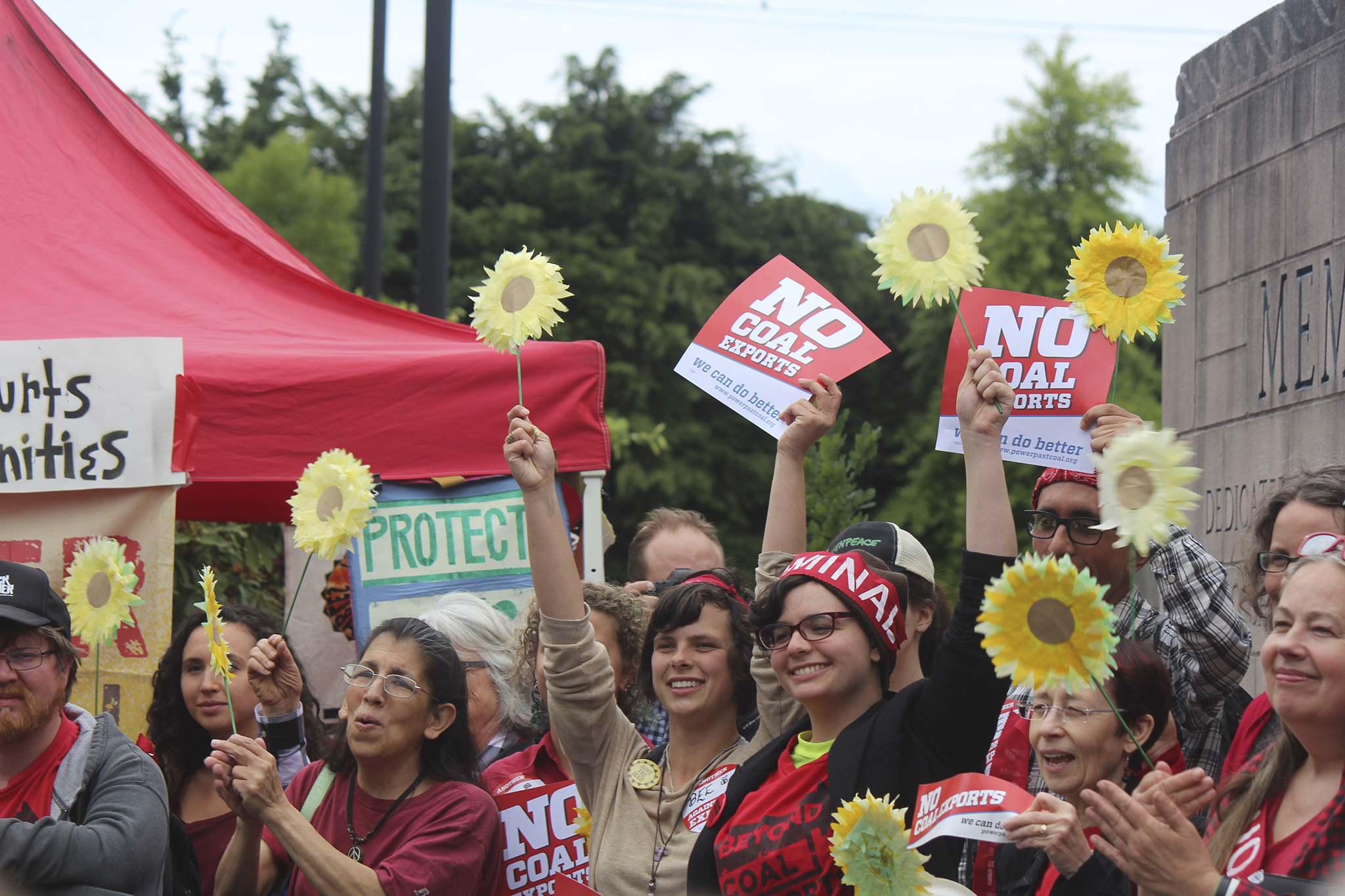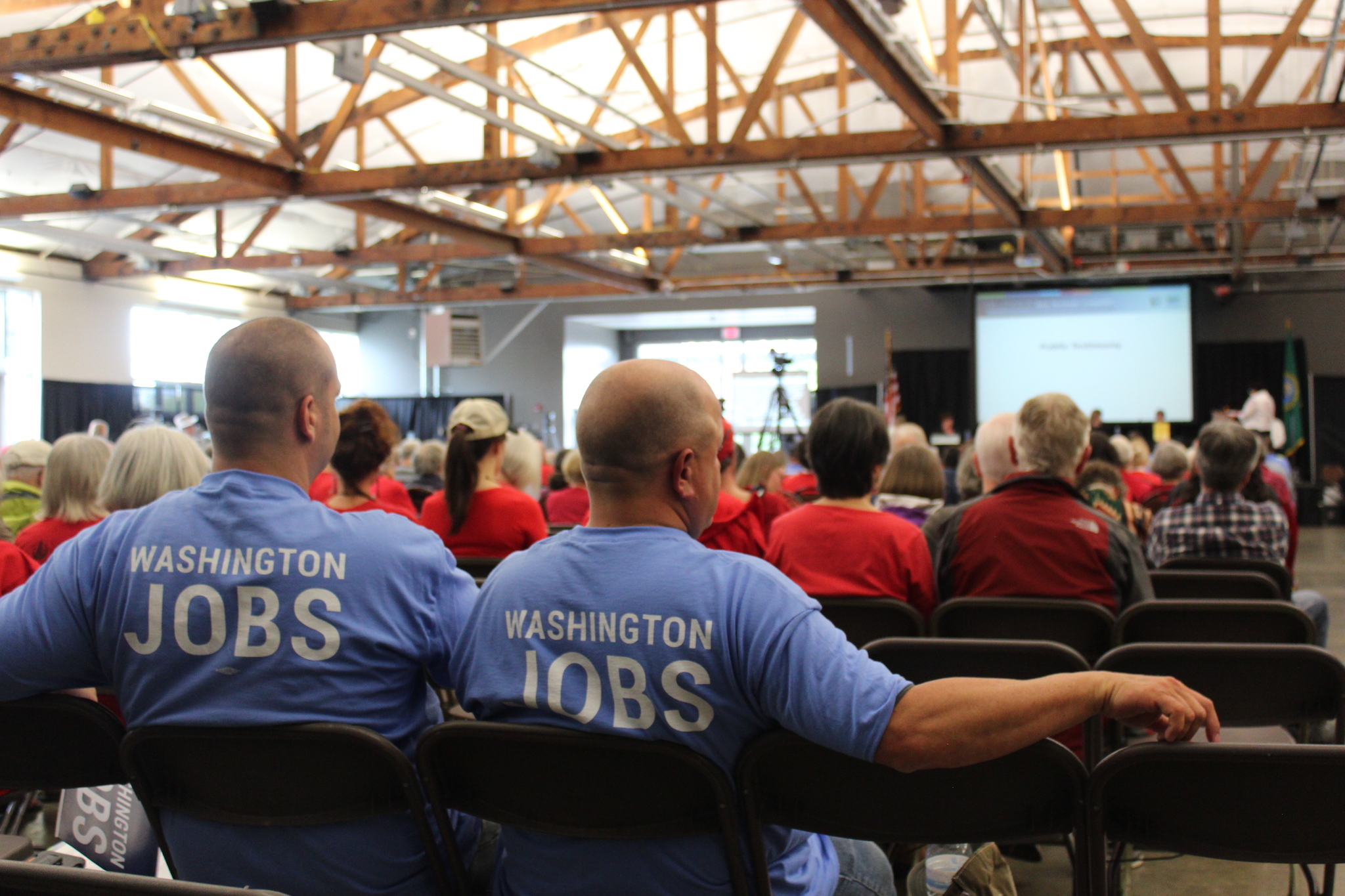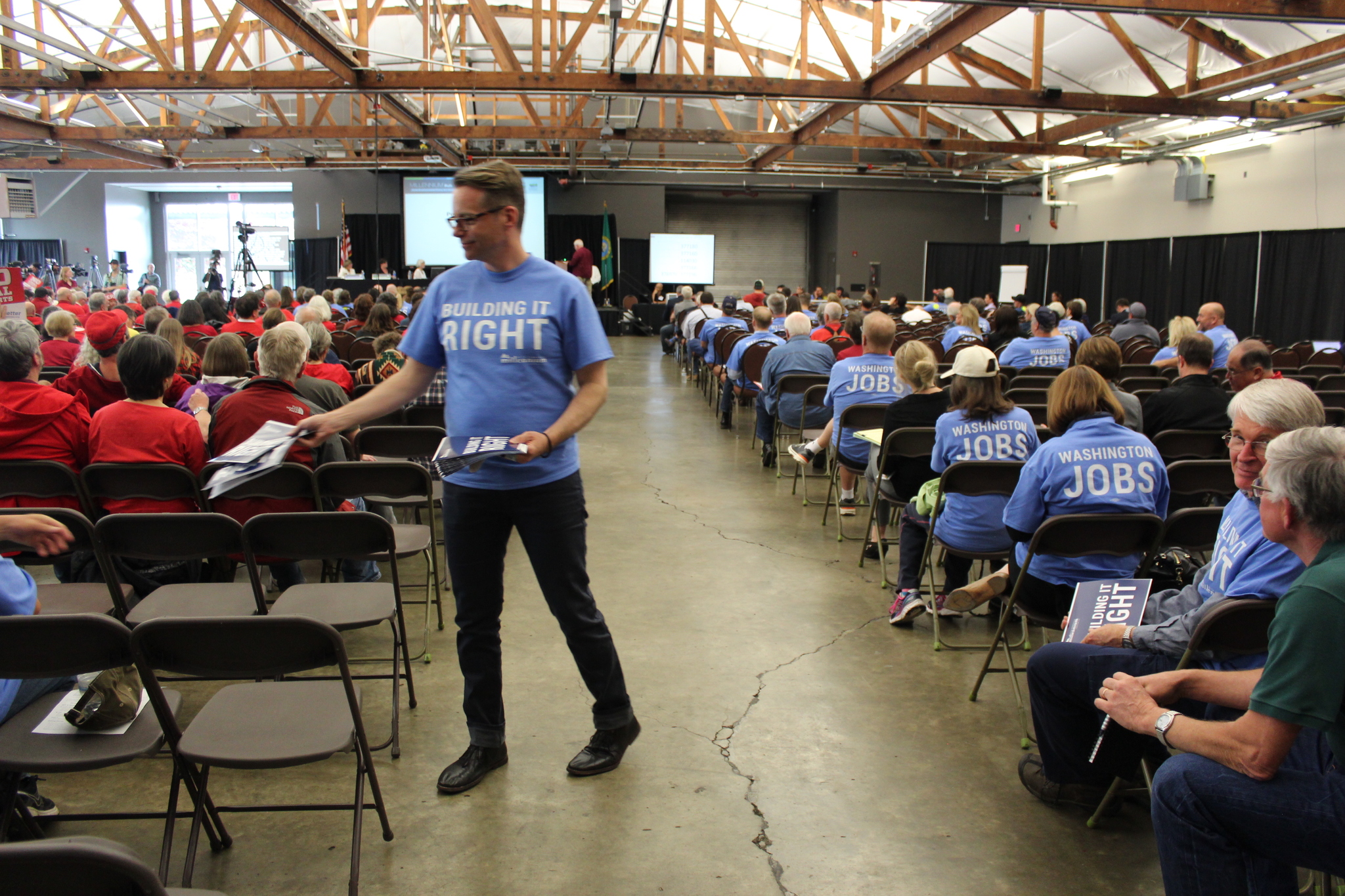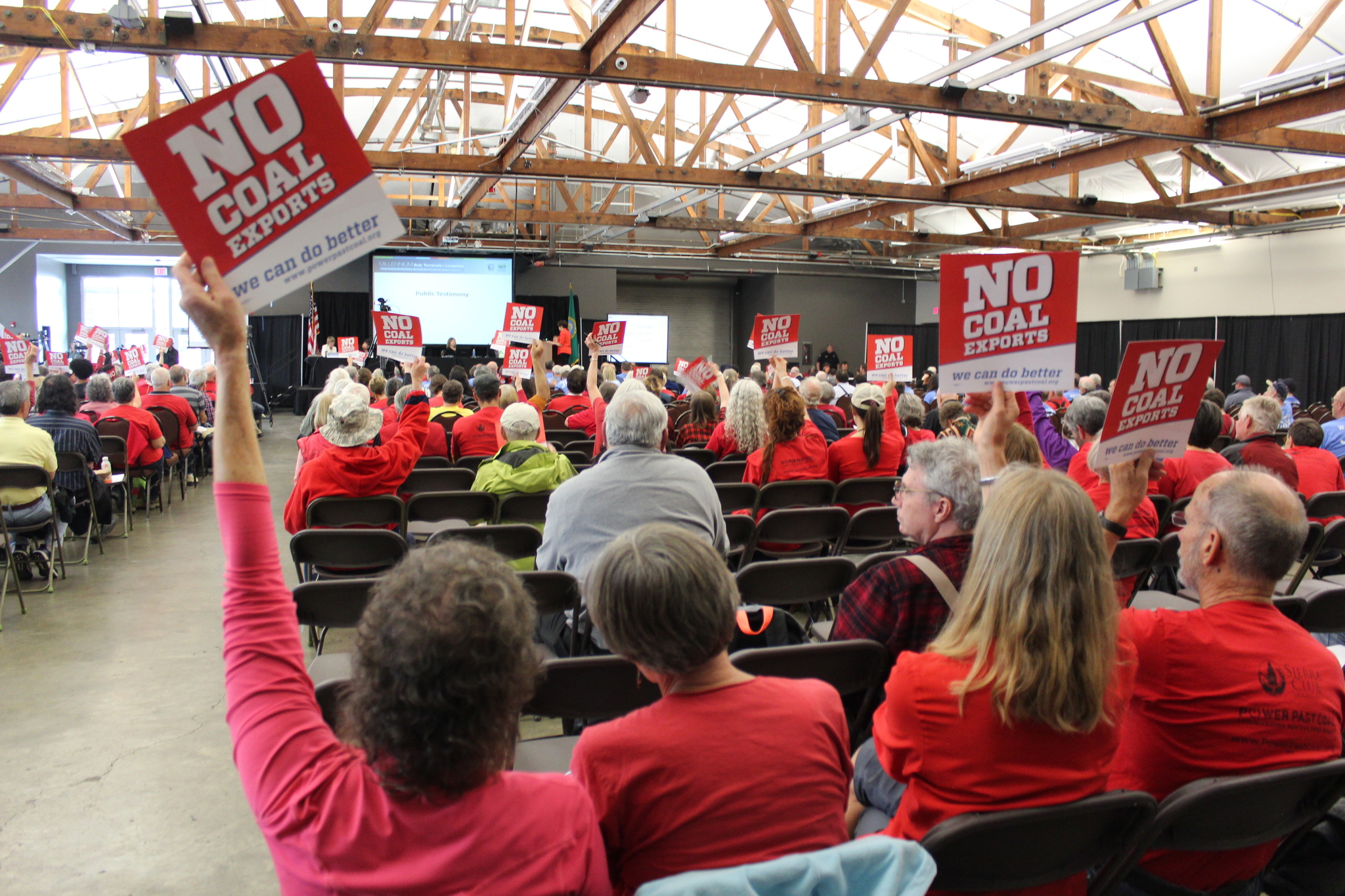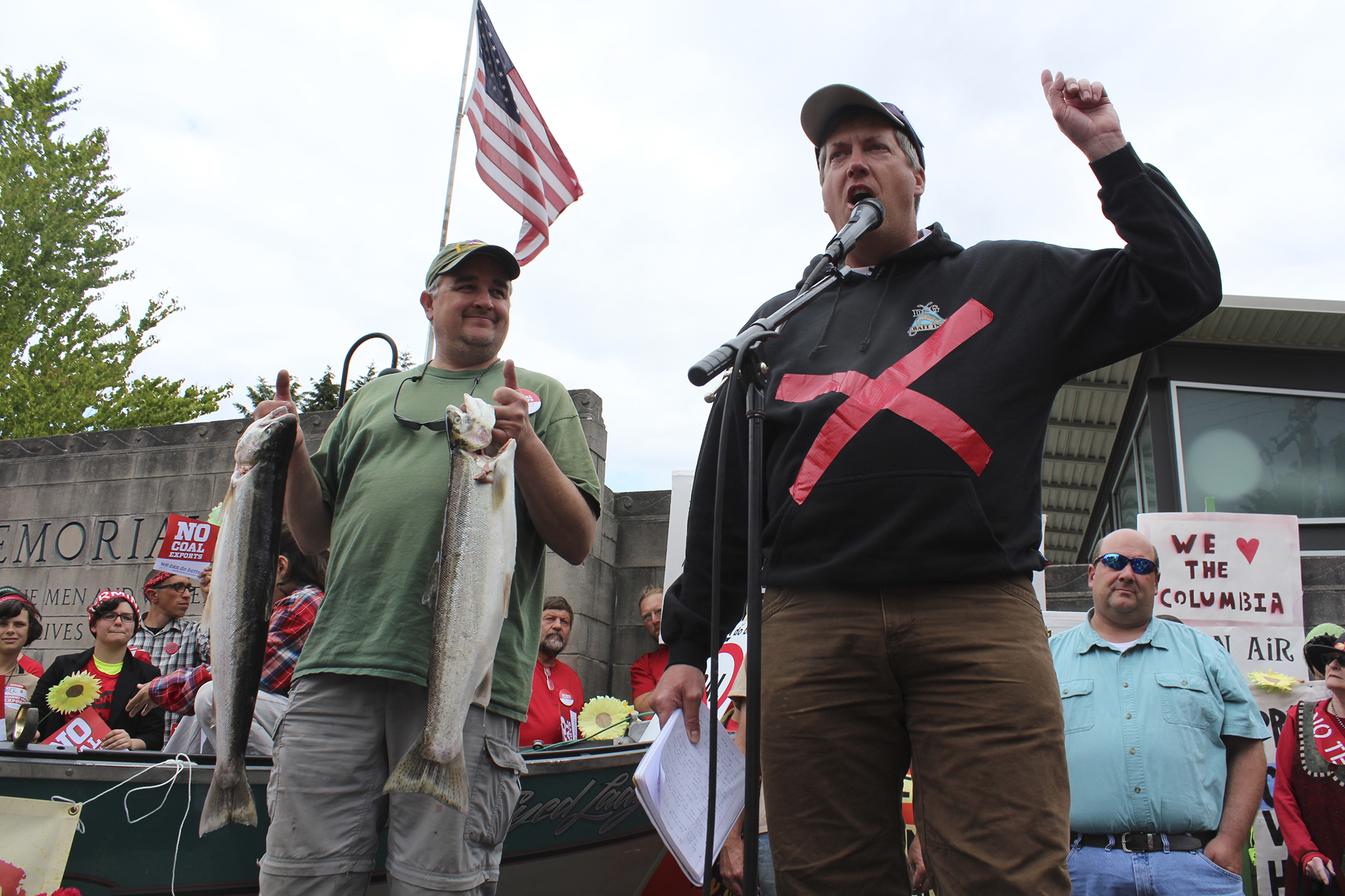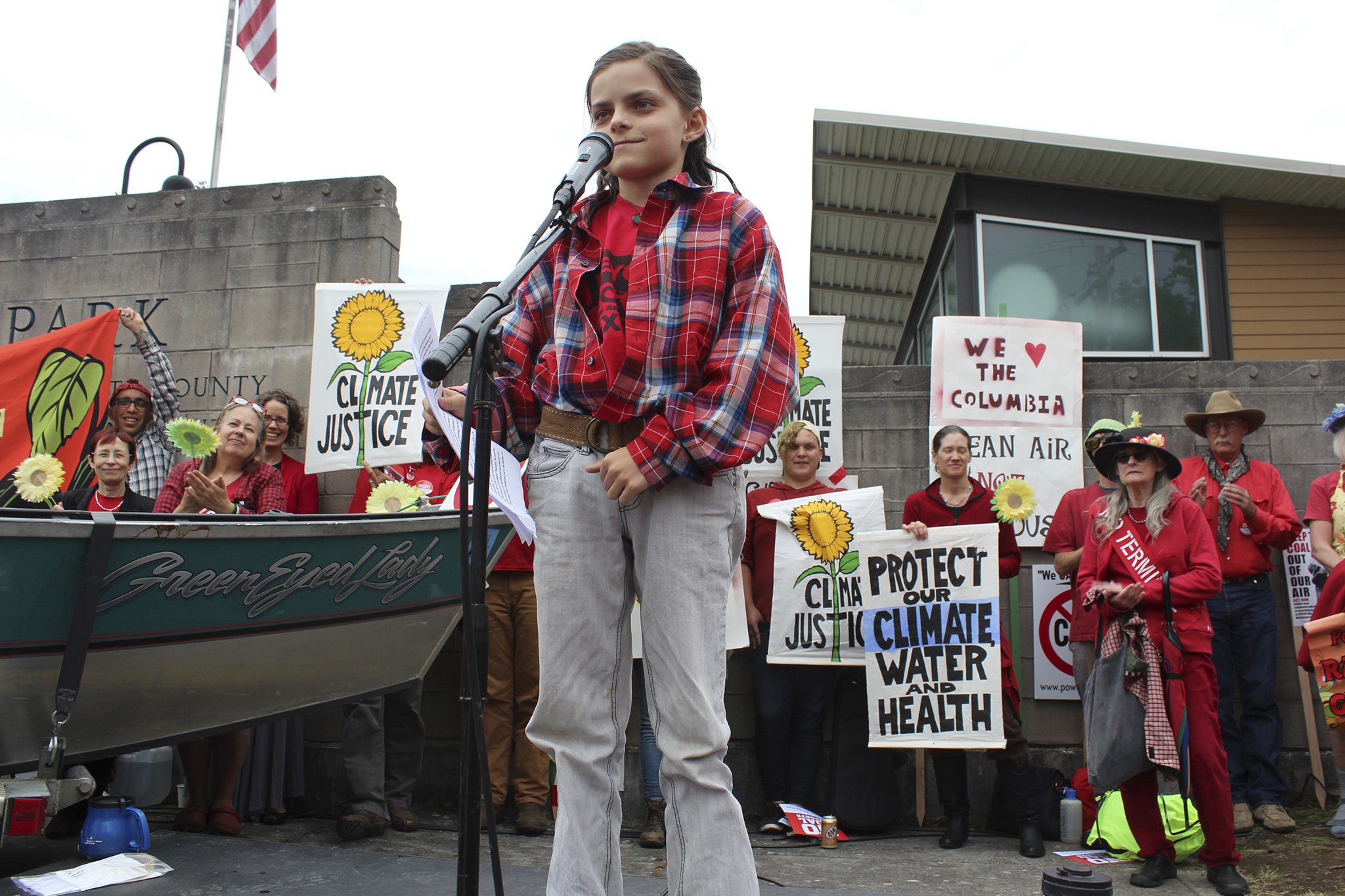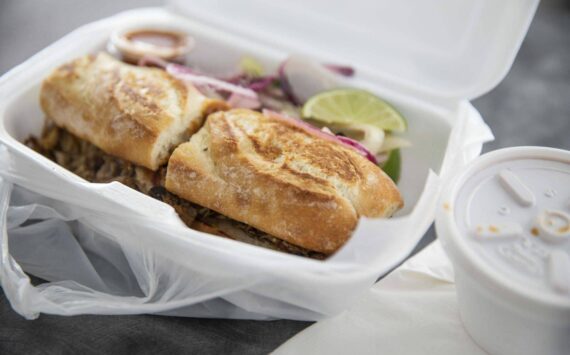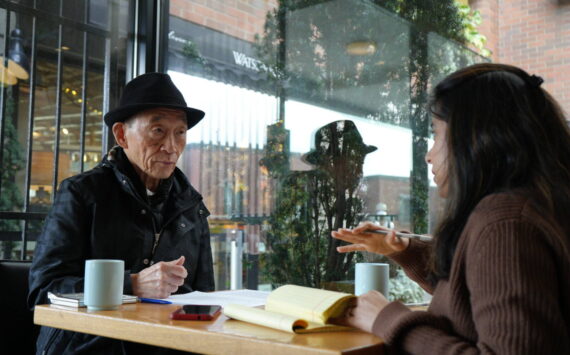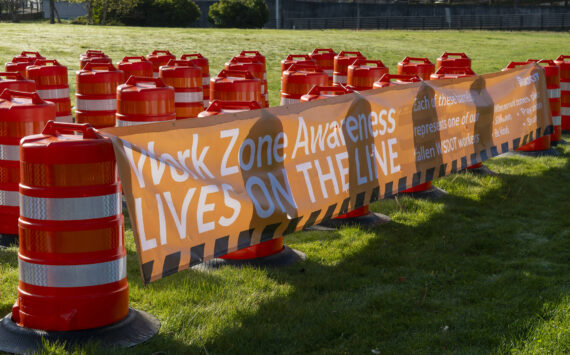It’s the first of three public hearings on the Draft Environmental Impact Statement for the last remaining coal export terminal in Washington. No one is bored. The main room at the Cowlitz County Conference Center in Longview is nail-bitingly tense.
Like a sporting event without the cheering, attendees defiantly segregate themselves into two opposing teams: red and blue. Red shirts on the left side of the room, for Power Past Coal, a coalition of Northwest climate activists that formed to oppose coal export proposals; blue on the right, for labor unions and locals who largely support Millennium Bulk Terminals’ proposal because it offers much-needed economic stimulus to a depressed lumber town. Red shirts vigorously shake signs that read “NO Coal Exports, We Can Do Better” at every opportunity to cheer on their comrades’ comments. Blue shirts, in lesser numbers, wave signs that read “Building it Right,” their backs bearing the words “Washington JOBS,” big and bold.
Each commenter gets two minutes; often, they run long, and the moderator cuts them off, ruthless. He also warns the restless fans, repeatedly, that any audible cheering or clapping could force him to suspend the proceedings. As the afternoon wears on, the red shirts — already covering a generous two thirds of the room — start invading the blue shirts’ side.
Yes, this could be some kind of home football game, with rows of chairs instead of bleachers, crammed with livid crowds, visibly polarized and ready to pounce. And if it were, by sheer numbers alone, you’d think the red shirts were winning. During the hours of testimony I witness, a small fraction of commenters support the Millennium project.
But an equally small fraction of commenters address the Draft EIS directly. Most people who’ve journeyed to Longview today, from Portland and Seattle and elsewhere in Oregon, Washington, and Montana, decry the whole idea of coal, and see this hearing as the last battle in a long war against Northwest coal terminals (a war that, thanks in part to the tanking coal industry, they’re winning). Activists, physicians, nurses, realtors, teachers, concerned teenagers, members of local tribes, fishermen; the testimony is relentless and fierce, and any statement about climate change gets the most furious sign-shaking, the most barely-muffled yelps.
Coal dust is on everyone’s mind; few believe the Draft EIS adequately represents the quantity of dust that will blow off of these open-air coal trains traveling from Wyoming to the Longview terminal. They believe it will coat neighboring communities in soot, exacerbate kids’ asthma, destroy fish populations in the Columbia River, and cause cancer. Jobs, too, dominate the red shirts’ message: just not these kinds of jobs.
“We absolutely want jobs coming to this community,” Christopher Kuttruff, a Portland resident and volunteer with Power Past Coal, whose canvassers have knocked on thousands of doors in Longview, tells me, “but ones that aren’t literally poisoning people.”
But the blue shirts disagree, asking why the red shirts don’t protest Boeing, too, if they want to hold a project like this accountable for all the greenhouse gas emissions of all of the fossil fuels it ever touches. They accuse those who think coal dust is a health issue of ignorance (one commenter calls it a “red herring”), and emphasize the skill and attention that Millennium has put toward remediating the existing site and abiding by every strict environmental rule so far.
Dave Gillihan, an old-timer with a thick handlebar mustache who’s been working for six different companies for 42 years at the proposed coal terminal site, says that before Millennium, “I’ve never worked for a company that is so safety oriented. If there’s a leak of oil on the ground, we’re on it. Nothing goes through the drain.” He thinks the proposal is not only a good idea, but “It’s a well thought-out thing. I don’t understand all the opposition, and all the people coming in from the differnt communities to oppose something that’s going to happen in my backyard.”
And the money the terminal promises, and the jobs? “Just ask the community. Talk to the local guy that works. The taxable income alone is going to provide so much for our schools… and our roads [that] are falling apart.”
Cameron Wilkinson, a pipefitter and member of the building and trades union Local 26, says he’s particularly impressed by how Millennium came first to the unions “and told us how important it was to use us for this. They signed a labor agreement” that would require them to hire locally, he says. “We’re excited to build this project.”
Still, not all locals support the project. Judy Baker, who says she’s lived in Cowlitz County for 52 years, stands at the podium to speak her piece, remembering when “we had bubbling crud rolling down the Columbia River. It took many years of public hearings … to make Cowlitz County a better community. Most public testimony” on environmental impact statements, she says, “comes down to economic concerns and environmental concerns.”
She gestures out toward the room. “As you can see: Red and blue.”
Bob Rees, executive director of the Northwest Steelheaders Association, who’s been fishing on the Columbia River for most of his life, says fish in the Pacific Northwest and our local and global consumption of fossil fuels are inextricably connected. He’s watched ocean acidification threaten fish and shellfish in the region, far more quickly and aggressively than any scientists first predicted. A lower snowpack in the Cascades and warmer temperatures overall mean warmer waters in the Columbia, which can kill coldwater fish, like salmon and steelhead, in a matter of hours, days, or weeks.
“This terminal,” he says, “is a gateway to a future that has no fish in it. We’re spending billions of dollars on salmon recovery, but we’re not looking at what I believe is the biggest part of the picture. This is the eight hundred pound gorilla in the room. There is no future for coal and oil on this river. We have enough problems to deal with. We’re not taking on any more.”
Each side holds a rally at 4 p.m. — the hearing’s halftime. Millennium’s blue shirts crowd around “Jobs & Cleanup: I Support Millennium” banners, and listen to resounding messages from local union members, residents, and Millennium President and CEO Bill Chapman.
The red shirts hear from a member of the Yakama nation, from the North Cheyenne, from several kids. They sing a climate-activist version of “The Whole World in Our Hands.” Bob Rees gets up to speak, alongside a friend and fellow angler who holds up two gigantic steelhead trout, caught that day on the Columbia. “What does coal bring us?” he shouts, drawing hoots and hollers from the crowd: “Coal brings us ocean acidification. Coal brings us climate change. Coal does not bring sustainable jobs.” Jobs in the fishing industry are the ones that are sticking around, he argues, if coal doesn’t kill them first.
“I don’t want to live in a coal town,” says a 13-year-old Longview resident named Angelina. “I’ve studied coal in school.”
And then, making the whole, red-shirted crowd laugh, bellow, and cheer: “It’s in history books… where it belongs.”
